Pulitzer Center Update July 22, 2019
First Rainforest Journalism Fund Conference Meets in Manaus, Brazil
Country:
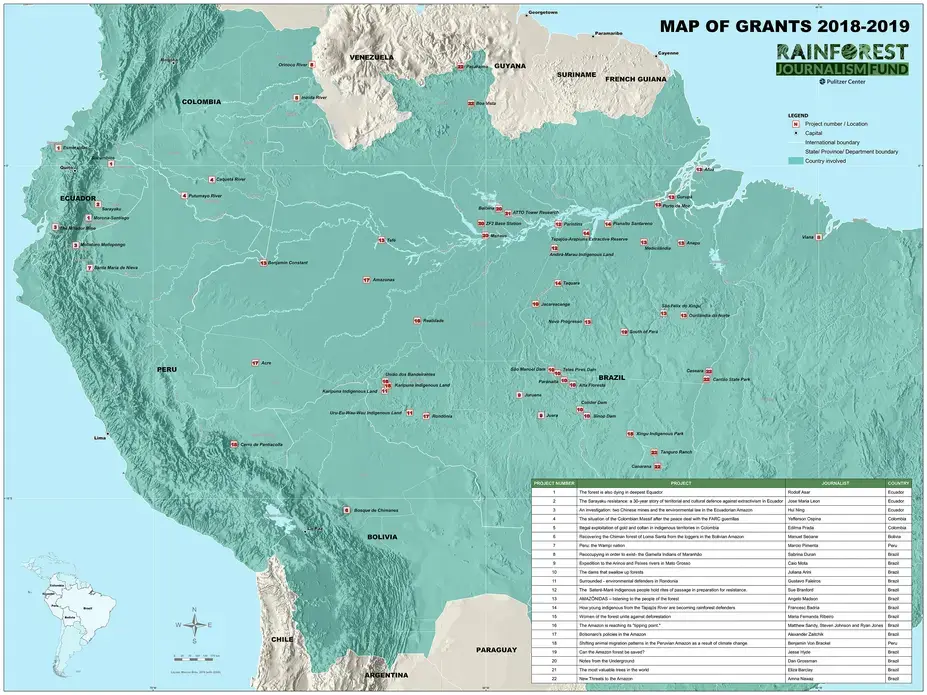
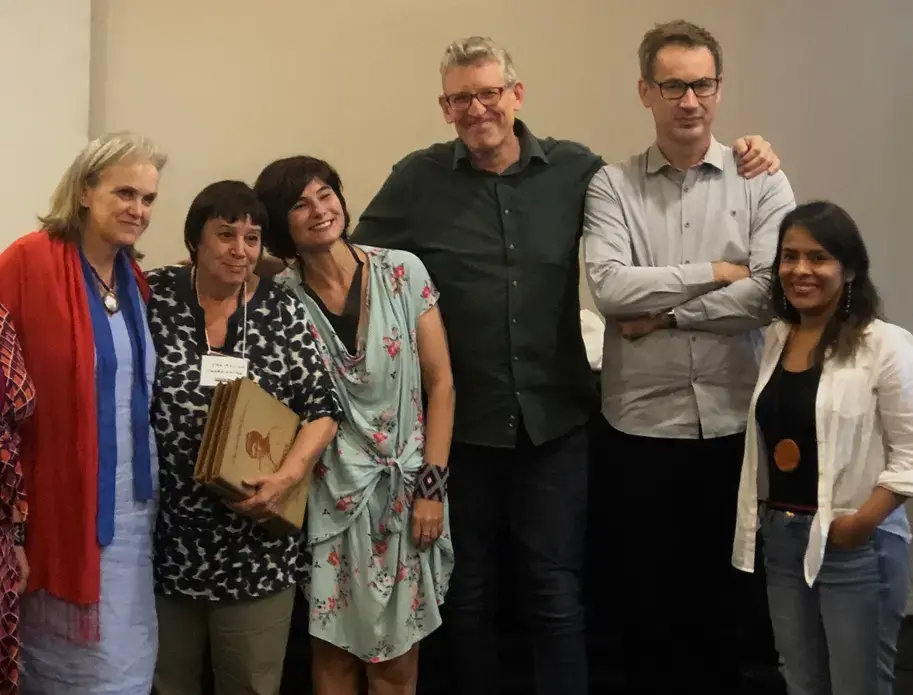

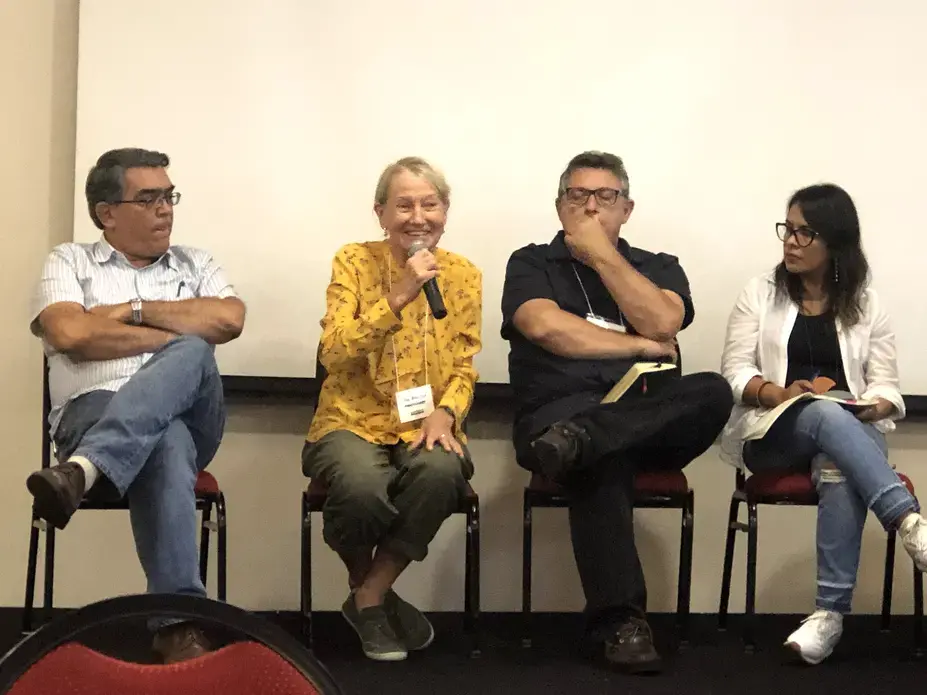
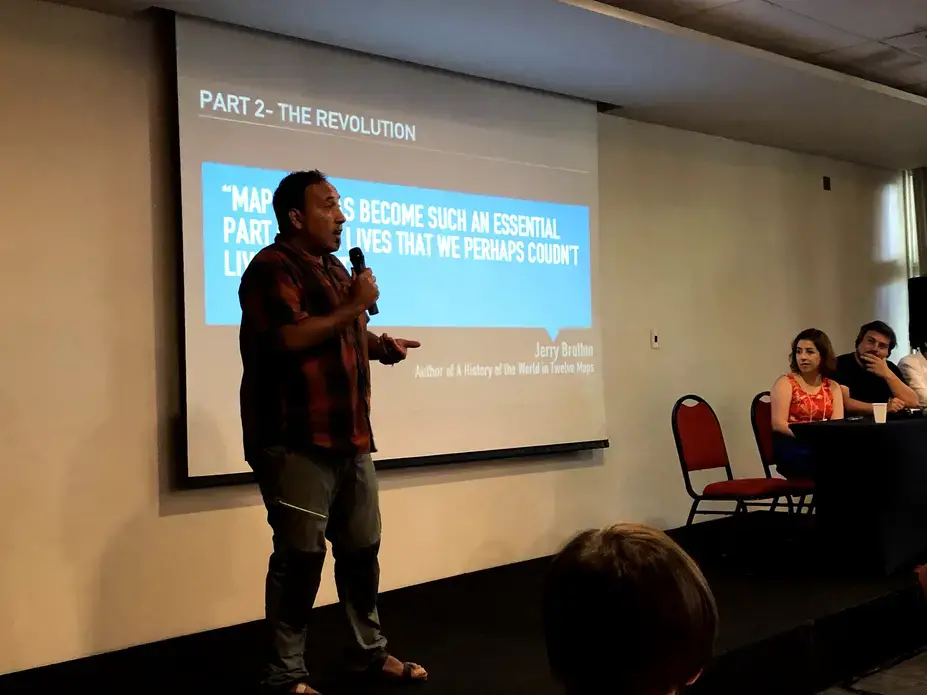
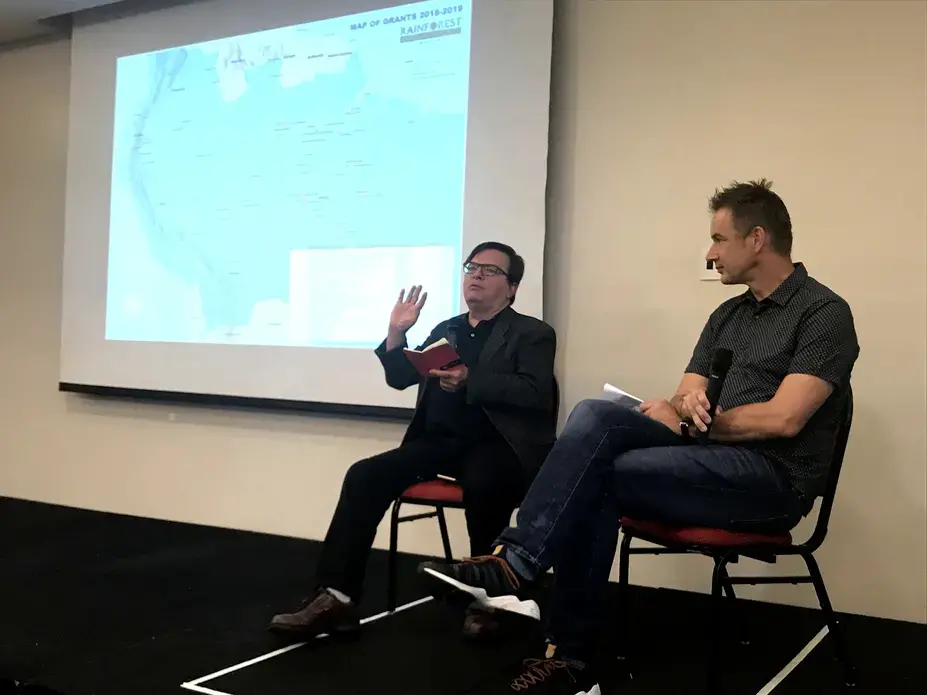
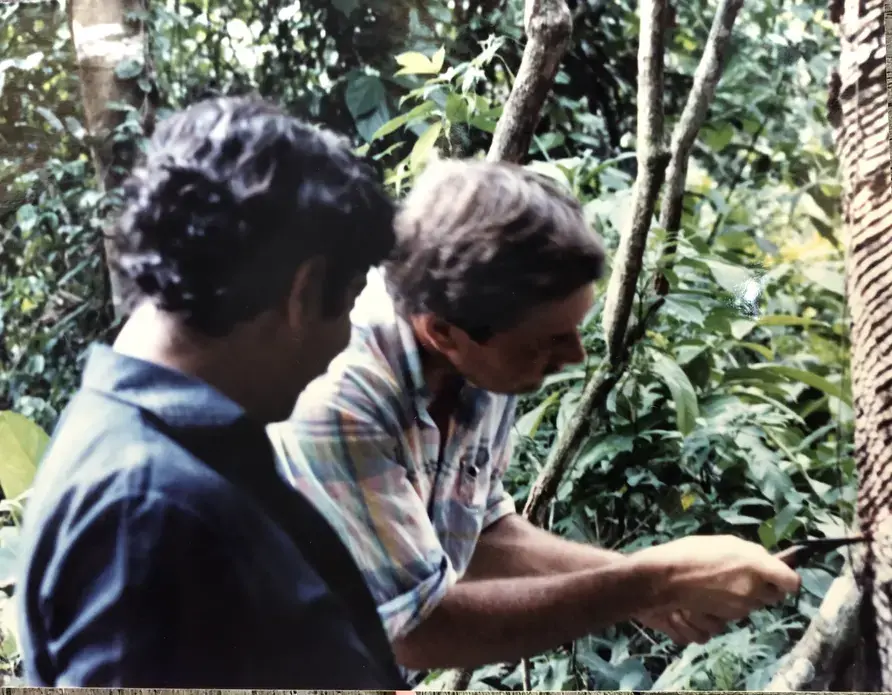









The Rainforest Journalism Fund (RJF) launched in September 2018, at the Global Climate Action Summit in San Francisco. A week ago, in Manaus, Brazil, an RJF gathering of 80 journalists from throughout the Amazon basin showed how powerful this new initiative can be.
Twenty of the journalists, RFJ grantees, presented their reporting projects. The rights of women and Indigenous peoples, threats to biodiversity, and China’s growing footprint in the region were among the topics addressed, for outlets that ranged from community radio to large regional newspapers to international outlets such as TIME, PBS NewsHour, and National Geographic.
One day of the convening was devoted to a joint session and dinner with the National Geographic Society featuring 40 scientists from across the Amazon region and 15 National Geographic Explorers embarking on their own Amazon reporting projects. Amazon biologist Thomas Lovejoy said in dinner remarks that it was the first time he had ever attended a gathering explicitly targeted at helping scientists and journalists learn from each other.
“We really need to work closely with our colleagues in journalism,” Lovejoy said. “They’re doing God’s work.”
Twenty-one journalists who attended the convening stayed on for four more days, completing an RJF-funded hostile-environment course that was especially tailored to the challenges of reporting in the Amazon.
A recurrent theme throughout the convening was the Amazon’s crucial role in stemming the effects of climate change and the potential consequences of Brazil’s election last fall of a new president, Jair Bolsonaro, who has made rapid development of the Amazon a major goal.
Veteran journalist Jan Rocha, the RJF’s regional coordinator for the Amazon, called on scientists to speak out more forcefully.
“Surely scientists have a collective responsibility to be more outspoken,” she said. “Surely scientists should be more vociferous, more loud, in making known what they know. This is a responsibility. If you know the world is headed to destruction you have to speak out about it... Surely, as a collective bunch of huge brains, you must find ways of making governments, like the Brazilian government, understand what’s really happening.”
Eliane Brum, a Brazilian newspaper columnist, reporter, and filmmaker based in the Amazon city of Altamira and a member of the RJF regional advisory committee, brought the dinner audience to its feet with a ringing call to “decolonize ourselves."
“In the great cities of Brazil and of the world we are removed from the deaths in which our small daily acts become accomplices,” Brum said. “We have the privilege of not being forced to question the origin of the clothes we wear or the origin of the food we eat.
“But here in the Amazon, if you eat beef you know that it is beef from deforestation . . . If you buy a table or a wardrobe you will be looking at this furniture and know that they are most likely made with wood plucked from Indigenous lands or from an extractives reserve. Here, in the center of the world, the relationship with the death of forests and of forest peoples is direct. It is inescapable.”
The presentations by grantees underscored the diversity of approaches and journalists that is a hallmark of the RJF. Projects are selected in consultation with the Amazon Advisory Committee, a group of leading journalists on the Amazon with a majority from Amazon-basin countries. The committeee is chaired by Jonathan Watts of The Guardian. Other members include: Daniela Chiaretti (Valor Econômico/Saõ Paulo), Eliane Brum (El Pais/Altamira, Brazil), Thomas Fischermann (Die Zeit/Rio de Jaineiro), Simon Romero (The New York Times/Albuquerque), Nelly Luna Amancio (OjoPublico/Lima), and Camilo Jimenez (Arcadia/Bogotá)
Ning “Lulu” Hui, a reporter for Initium Media in Hong Kong and for China Dialogue, shared her work on the protests by local groups that have thus far blocked development of a Chinese-owned gold mine in southern Ecuador—and the value of in-person field reporting. “Most Chinese [businesses] view journalism as a messenger for them; they don’t see our role as independent observers,” she said. “So I was very surprised that the company manager [in Ecuador] agreed to talk with me.”
Angelo Madson, founder of the Media Age community radio station in the Amazon city of Belém, said the convening was an opportunity to meet journalists from throughout Brazil, South America, and beyond. Caia Moto, a Manaus native, said his project on unnecessary dams in the state of Mato Grosso was the culmination of 20 years of work aimed at building up journalism in the Amazon. Nadia Pontes said her work on the women of the Xingu National Park “taught me to be humble, in approaching Indigenous peoples and the forest both.”
The convening featured four in-depth workshops, tapping the expertise of the journalists and outside specialists on the use of geospatial mapping, investigative journalism, ensuring the safety of journalists and the people they cover, and how to better incorporate the voices and life experience of Indigenous peoples in reporting on Amazon issues that they know more deeply than anyone from outside.
One Indigenous voice making an unforgettable impression at the convening was Djuena Tikuna, a member of the most populous Indigenous tribe in the Amazon who gave a deeply moving performance of her song “We Are the Forest.”
Today the rivers are drying
Birds do not sing anymore
Only they know how to cry
The sky bleeds
And the butterflies fly away
In my village, the children burn in fever
And they burn, even the medicine man's breath
We are survivors, we need to live
We are the cry of the forest
We are the fish, climbing upstream
We are the flock of macaws, at sunset
We are the children of this land
The forest is ours, we are the forest
Tikuna was the first Indigenous singer to perform at Teatro Amazonas, the iconic theater in downtown Manaus that was built at the peak of the late 19th Century rubber boom, one way station among many in the centuries-long attempts by outsiders to exploit and transform the forests of the Amazon.
Contributing editor Kem Sawyer and I had not been in Manaus or the Amazon since the fall of 1987. On that trip, in the early days of Brazil’s transition from military dictatorship, we had traveled out to the western rainforest state of Acre with Chico Mendes, a rubber tapper turned environmentalist who was campaigning to stop deforestation. A few months later he was murdered.
It was gratifying on this return trip to see signs along the Rio Negro near Manaus referencing the Chico Mendes Institute for Biodiversity Conservation, the administrative arm of the Brazilian Ministry of the Environment that was named in his honor. It was disconcerting to read, in the RJF project by Alexander Zaitchik for The Intercept, that Brazil’s current government speaks favorably of the dictatorship and is dismissive of Mendes’ work.
“What difference does it make who Chico Mendes is ... ?” said Environment Minister Ricardo Salles.
The Rainforest Journalism Fund is about ensuring that voices like Chico Mendes are heard—and that the policies of governments in Brazil and beyond benefit from the fullest possible discussion of issues that matter, economic development to be sure but also the protection of Indigenous rights, biodiversity, and the preservation of a unique ecosystem that in climate terms is truly the lungs of the planet.
The RJF will continue for at least the next four years, expanding to incorporate reporting from the great rainforests of the Congo basin and Southeast Asia as well as ongoing work in the Amazon. The fund is supported by the Norwegian International Climate and Forest Initiative and other donors. It is administered by the Pulitzer Center with a guarantee of editorial independence to grantees and news-outlet partners.










